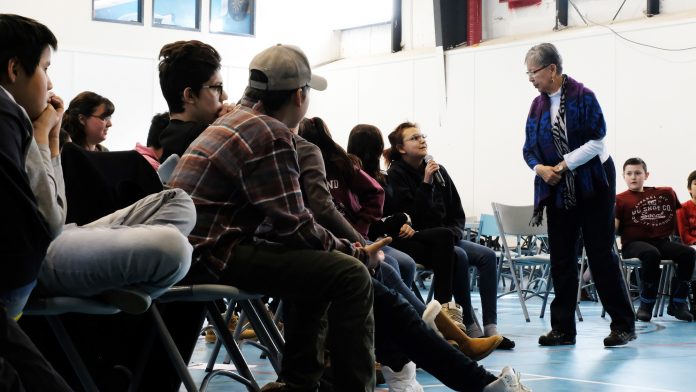
Prince Albert was the latest stop on a Senate Committee fact-finding mission designed to lay the groundwork for an improved relationship between the Canadian government and Canada’s Indigenous peoples.
On Thursday, six members of the Canadian senate spent the day meeting with local First Nations and Metis residents. The trip included a session with inmates at the Saskatchewan Penitentiary, as well as a forum in the afternoon at the Cosmopolitan Lodge in Little Red River Park.
Alberta senator Scott Tannas, the committee’s vice-chair, said there is a unique opportunity to improve relations between the government and Indigenous people. However, he said it’s vital that Canada’s leaders follow their good intentions up with action.
“These chances don’t come along very often and many of us are concerned that the hard work won’t be done, just the talk will be done, and we will leave everybody even more cynical five years from now if nothing happens,” Tannas said following the final meeting on Thursday. “We’re determined not to let that happen and we’ve got the power to do it.”
That determination could mean introducing new legislation in the senate and putting the onus on parliament to pass it. In the past, Tannas said the senate hasn’t been as active in that arena, but he’s confident the current group is going to reverse that trend and make sure real change happens.
“You’ve got to realize that this is a newly awakened senate,” he said. “We have been more activist in the last two and a half years than in the 20 years prior.”
However, confronting the government isn’t the senate committee’s primary concern. Tannas is hopeful that their meetings will help provide a list of recommendations that will benefit Indigenous people, as well as current and future parliamentarians. To get there, he said all Canadian residents need to be brutally honest about what’s wrong with the current relationship, and that’s something he wants the committee to dig into.
The trip to Prince Albert has been helpful in that regard, especially the time spent at the penitentiary. Tannas said it’s becoming clear that additional healing still needs to take place, as well as increased acknowledgement of Indigenous identity, before that relationship can flower.
“You have to be very, very clear about what success looks like, how it will feel, because you’re going to navigate towards it,” he said. “There will be times where you’ll need to ask yourself why you’re doing it because it won’t be an easy navigation to get to that destination. No hard job is.”
Although Tannas serves as a Conservative senator, he said it’s encouraging to see how Prime Minister Justin Trudeau and the Liberal government have made rebuilding the relationship a priority. He compares rebuilding the relationship to the Marshall Plan, used by the United States to rebuild Europe after the devastation of the Second World War.
He’s confident that sessions like the ones in Prince Albert, and today’s committee meetings, which will be held in Winnipeg, hold the key to unlocking the benefits of that relationship for future generations.
“The key to the Marshall Plan was clarity about where they were, the brutal truth about all the brutal things that would stop them from achieving,” Tannas said. “I believe that we can have our own Marshal Plan here that can do it in a generation, and if we can do it in a generation and bring along the generation that’s here now, boy, I think that’s worth striving for.”

